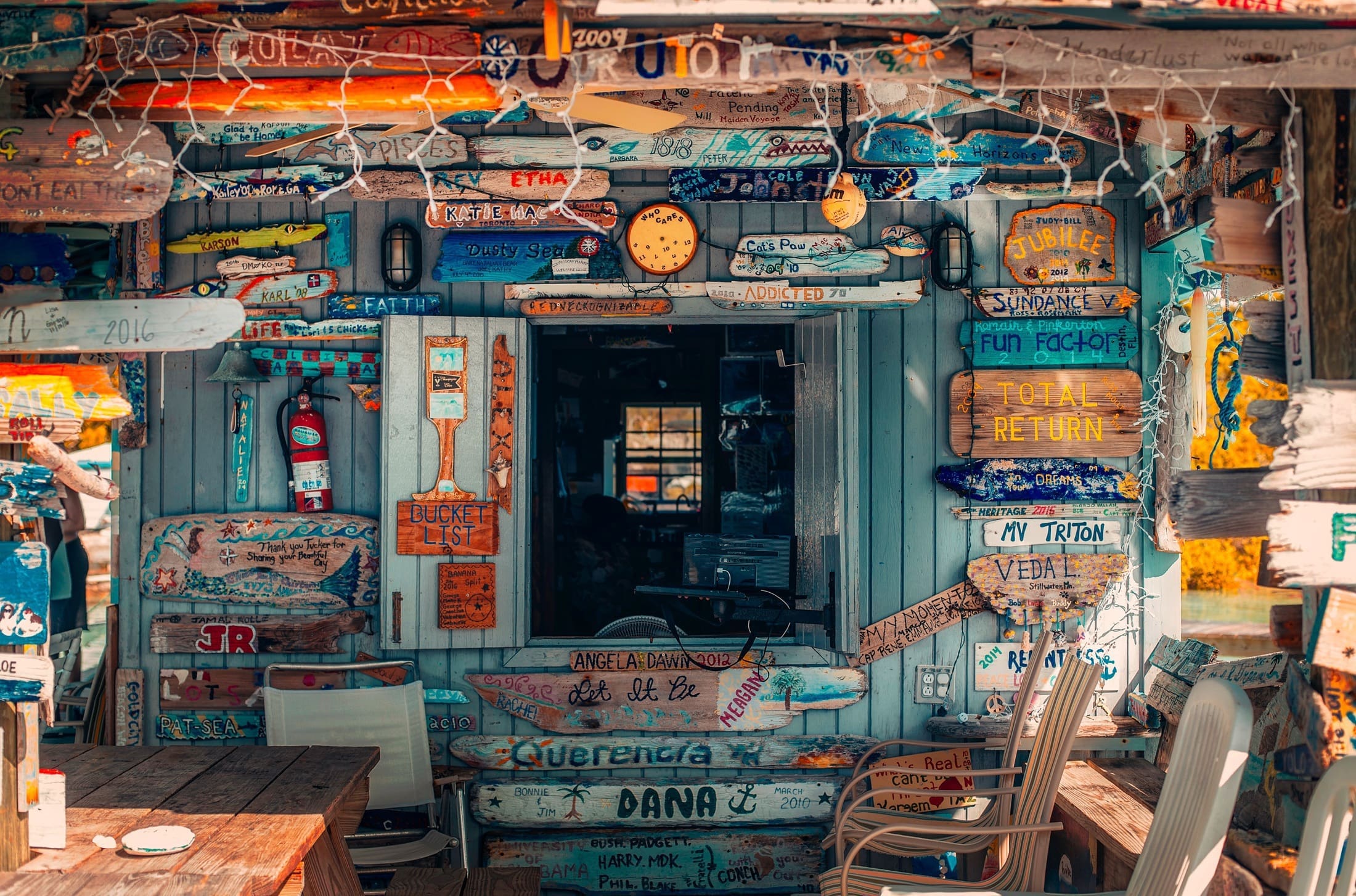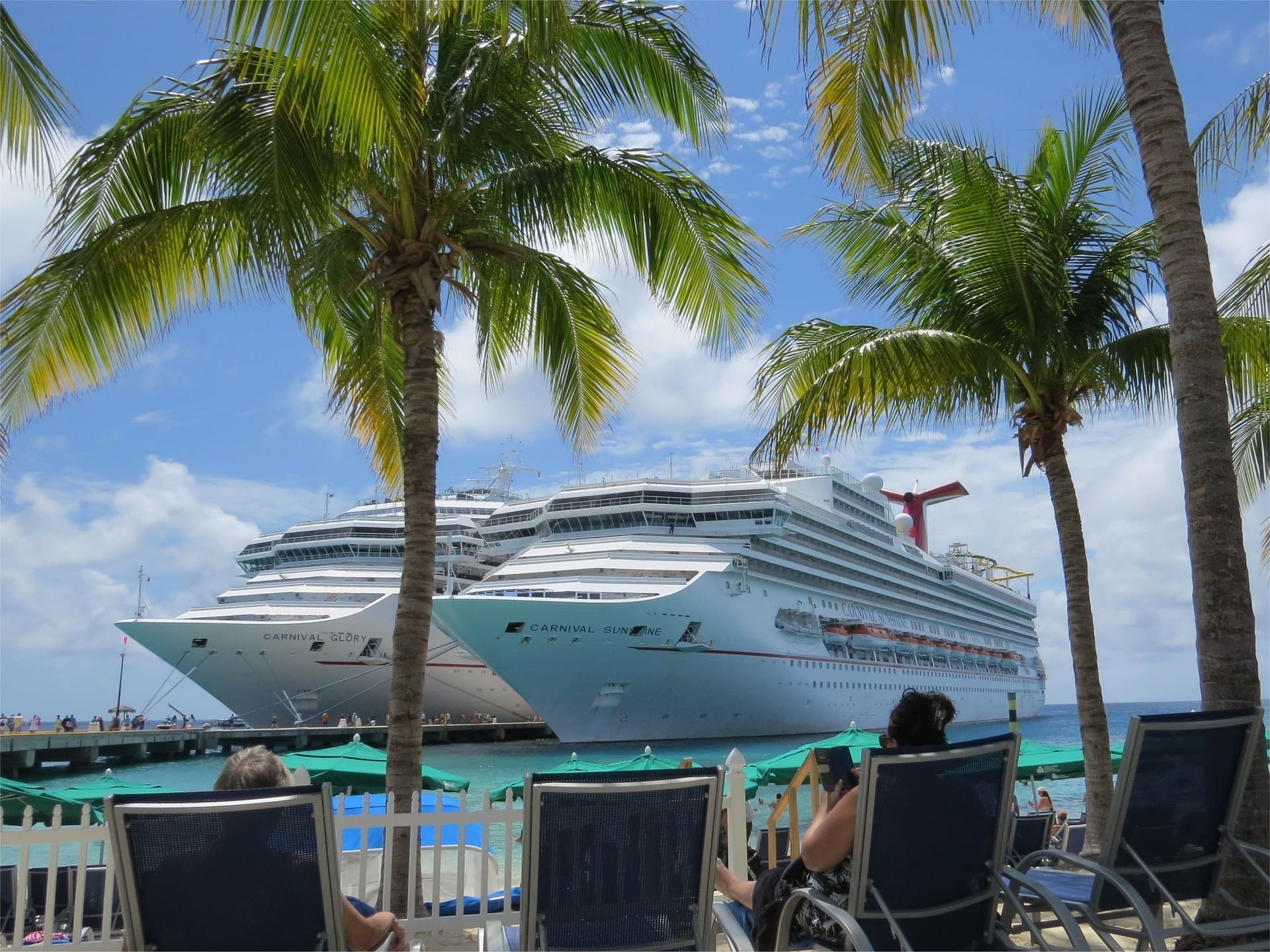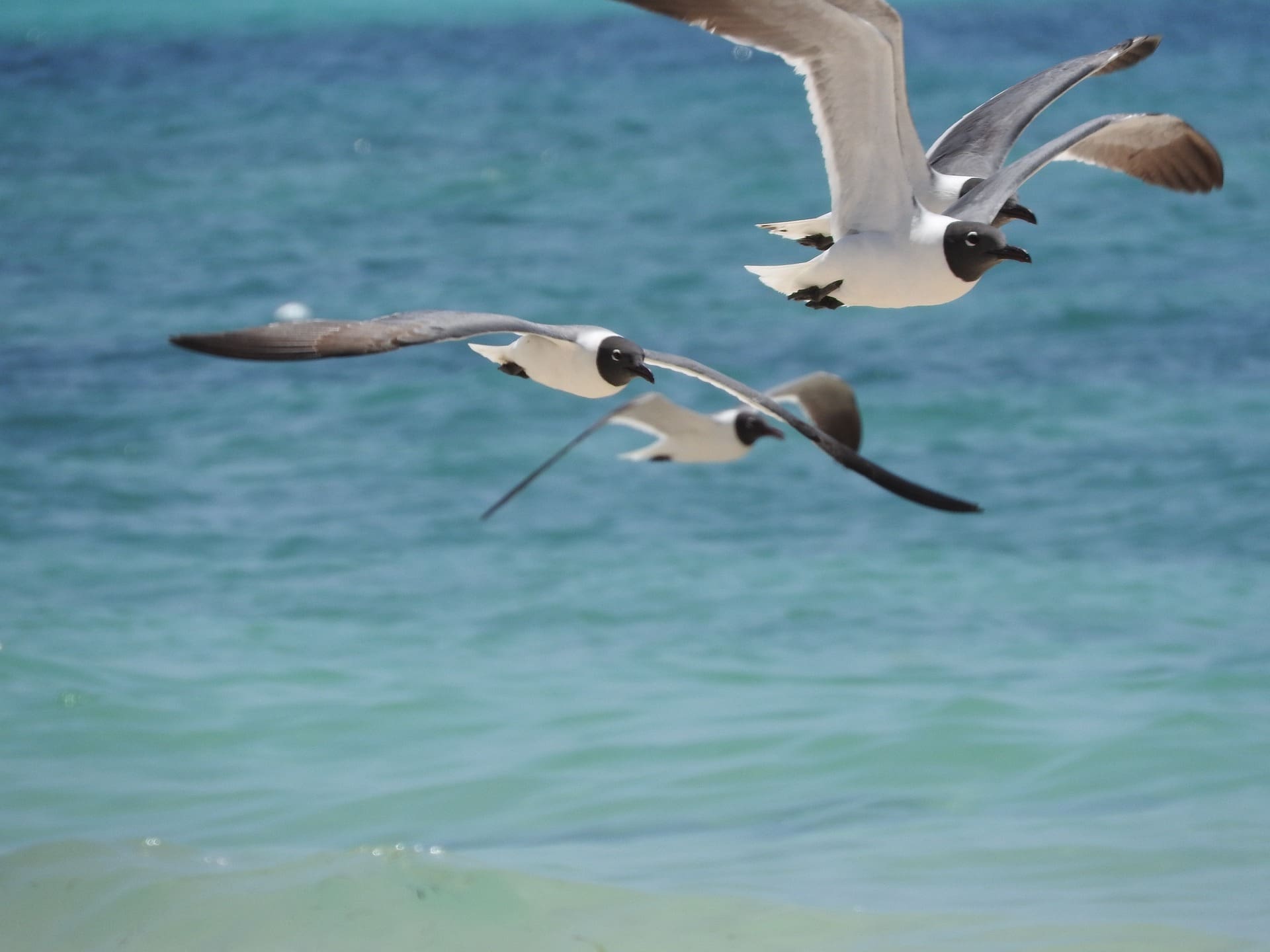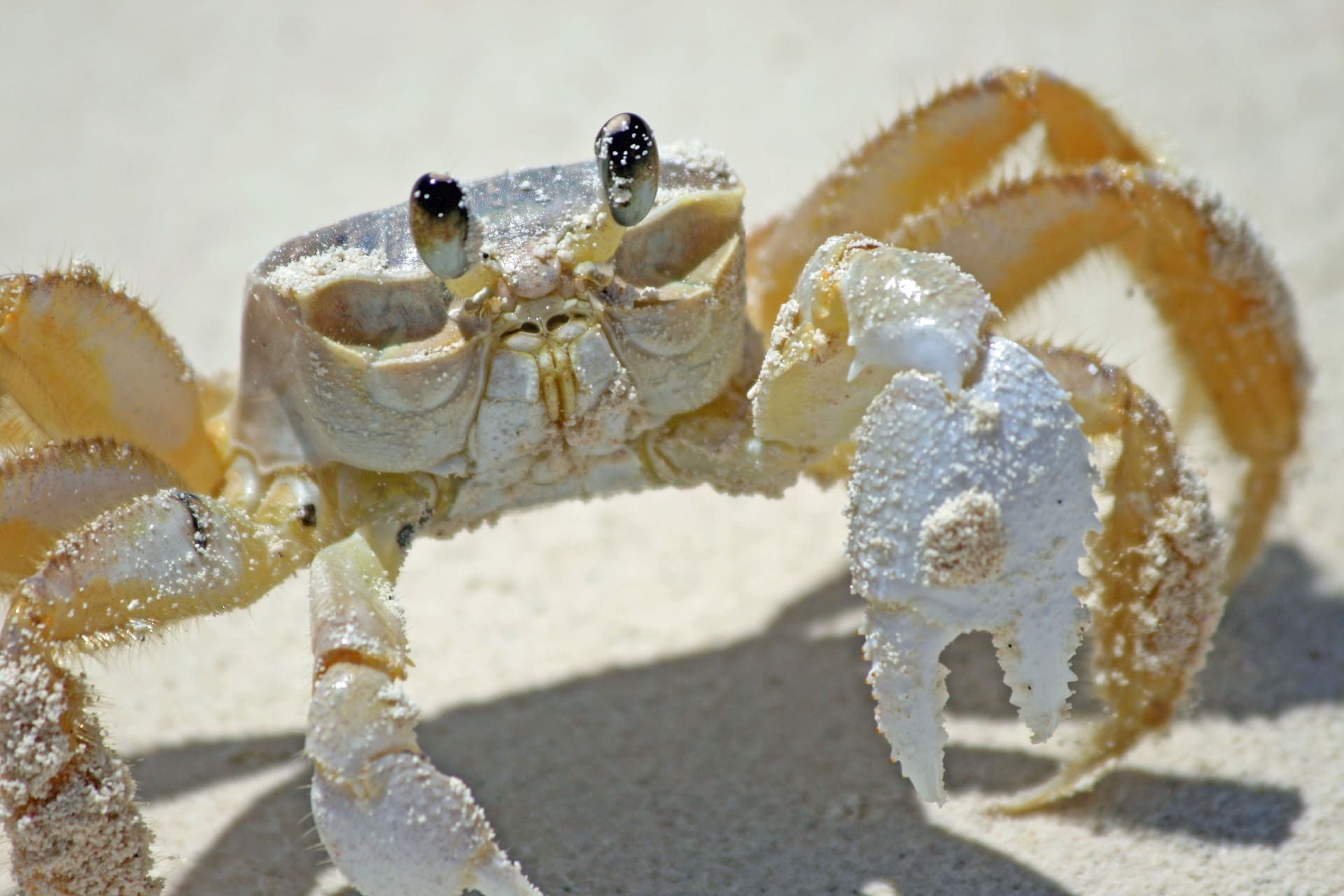Bahamas
beautiful beaches, clear blue water
About Bahamas
Culture and Religion
Where to go
How to get there
Visa Requirements
Travelling Budget
About Bahamas
The Bahamas is a stunning archipelago of over 700 islands and cays located in the western Atlantic Ocean. Known for its natural beauty and crystal-clear turquoise waters, it is a popular destination for tourists seeking a tropical paradise.
The islands of the Bahamas offer a wide range of attractions and experiences. The capital city of Nassau, situated on the island of New Providence, is a bustling hub filled with colorful colonial architecture, vibrant markets, and a lively nightlife scene. Nearby, Paradise Island boasts luxurious resorts and the iconic Atlantis Paradise Island resort, known for its water parks, marine habitats, and casino.
Beyond the main tourist hubs, the Bahamas is renowned for its spectacular beaches. From the famous Pink Sands Beach on Harbour Island to the secluded shores of the Exumas, pristine white sands and breathtaking sunsets await visitors. Snorkeling and diving enthusiasts will be captivated by the vibrant coral reefs, underwater caves, and Blue Holes that dot the surrounding waters.
The Bahamas is also a place rich in history and culture. Visitors can explore the charming settlements of the Out Islands, such as the picturesque Hope Town, with its candy-colored cottages and iconic lighthouse. Bahamian cuisine showcases a blend of flavors influenced by African, Caribbean, and European traditions, with specialties like conch fritters and fresh seafood dishes.
Nature lovers will find plenty to explore, as the Bahamas is home to diverse ecosystems teeming with wildlife. The Andros Barrier Reef is the world’s third-largest coral reef system, attracting snorkelers and divers from around the globe. Inland, the Lucayan National Park features stunning caves and lush mangrove forests.
With its natural wonders, warm hospitality, and a range of activities to suit all preferences, the Bahamas remains a dream destination for travelers seeking a sun-soaked getaway in a tropical paradise.
Culture and Religion
The culture of the Bahamas is a rich blend of influences from various African, European, and Caribbean traditions. Bahamian culture reflects the vibrant history and heritage of the islands, which have been shaped by indigenous people, colonial powers, and the descendants of enslaved Africans.
Religion plays a significant role in Bahamian culture, with Christianity being the predominant religion. The majority of Bahamians identify as Protestant, with Baptist and Anglican denominations being particularly prevalent. Churches hold a central place in the community and serve as gathering places for worship, social events, and community support.
The unique blend of African and European influences can be seen in various aspects of Bahamian culture, including music, art, and cuisine. Junkanoo, a traditional Bahamian festival, is a vibrant celebration of music, dance, and costume. With roots in West African culture, Junkanoo is a lively parade that takes place during Christmas, New Year’s, and other special events, showcasing the creativity and rhythm of the Bahamian people.
Bahamian cuisine is a delicious fusion of flavors influenced by African, Caribbean, and European traditions. Seafood dishes, such as conch salad and cracked conch, are popular staples, while other local delicacies include guava duff (a sweet dessert) and johnnycakes (a type of bread).
Hospitality is highly valued in Bahamian culture, and visitors to the islands can expect warm and friendly interactions with the locals. The art of storytelling is also significant, with tales of island traditions, myths, and legends being passed down through generations.
Overall, the culture of the Bahamas is a reflection of its diverse history, with a fusion of African, European, and Caribbean influences shaping its traditions, religion, and way of life. Visitors to the islands can immerse themselves in this vibrant culture, experiencing the hospitality, art, music, and cuisine that make the Bahamas a unique destination.
Where to go

Exquisite Beaches
The Bahamas is renowned for its breathtaking beaches. From the powdery pink sands of Harbour Island’s Pink Sands Beach to the pristine white sands of Treasure Cay Beach, there are numerous beaches to explore and unwind on. Head to the Exumas for the unforgettable beauty of the swimming pigs at Pig Beach.

Swimming with Sharks
If you’re seeking adventure, head to the crystal-clear waters of the Bahamas to swim with sharks. Encounters at Stuart Cove’s Dive Bahamas or Compass Cay allow you to safely experience the thrill of being in the water with these magnificent creatures.

Nassau and Paradise Island
Explore the vibrant capital city of Nassau, where colonial charm meets bustling markets and colorful architecture. Visit iconic landmarks like Fort Charlotte and the Queen’s Staircase, immerse yourself in history at the Bahamas Historical Society Museum, or try your luck at the vibrant casinos on Paradise Island.

Andros Island
The largest of the Bahamas’ islands, Andros is a nature lover’s paradise. Explore the incredible blue holes and underwater caves, go birdwatching in the vast wetlands, or experience world-class bonefishing in its shallow flats. The Andros Barrier Reef is also a must-visit for divers and snorkelers.
Note: These are just a few highlights of the Bahamas, a destination that offers a wealth of natural beauty, cultural experiences, and exciting adventures. Exploring the islands will undoubtedly uncover many more treasures and unforgettable moments.
How to get there
Getting to the Bahamas is relatively easy, as it is a popular destination with good transportation connections. There are several ways to reach the islands, depending on your location.
By air, the most common way to reach the Bahamas is by flying into one of the main international airports. The busiest airport is Lynden Pindling International Airport (NAS) in Nassau, which receives numerous flights from major international cities. Other international airports include Grand Bahama International Airport (FPO) in Freeport and Marsh Harbour Airport (MHH) in the Abacos. From these airports, you can easily access other islands by domestic flights or ferry services.
Cruise ships are another popular way to reach the Bahamas. Major cruise lines operate regular itineraries to the islands, with ports of call in Nassau, Freeport, and other destinations. These cruises offer a convenient and enjoyable way to explore multiple Bahamian islands during your trip.
Private boats and yachts can also be used to reach the Bahamas, as there are numerous marinas and harbors available for docking. However, proper navigation and compliance with immigration and customs regulations are essential when arriving by private vessel.
Once in the Bahamas, inter-island transportation can be facilitated by domestic flights, inter-island ferry services, or chartered flights and boats. Domestic carriers, such as Bahamasair and Western Air, provide frequent flights between major islands. Ferry services, such as Bahamas Ferries and Bahamas Paradise Cruise Line, operate between Nassau, Freeport, and several Out Islands.
Before traveling to the Bahamas, it is important to check entry requirements, including passport validity and visa regulations, based on your country of origin. Additionally, it is advisable to check any travel advisories or guidelines issued by your government or health organizations to ensure a safe and smooth journey.
Visa Requirements
Visa requirements for visiting the Bahamas vary depending on your nationality. Here are some general guidelines:
1. Visa-free travel: Citizens of many countries, including the United States, Canada, the United Kingdom, the European Union, Australia, and New Zealand, do not need a visa to enter the Bahamas for stays of up to 90 days. They will receive a visa upon arrival, free of charge.
2. Visas on arrival: Travelers from certain countries, including India, China, Russia, and South Africa, are required to obtain a visa prior to travel. However, they can also apply for a visa on arrival at the airport or seaport in the Bahamas. It is advisable to check the specific requirements and procedures with the Bahamian embassy or consulate in your home country before traveling.
3. Visa extensions: If you wish to extend your stay beyond the initially granted 90 days, you can apply for an extension at the Bahamian Department of Immigration in Nassau. However, this is subject to approval and may require additional documentation.
It’s important to note that visa requirements can change, so it is always recommended to check with the Bahamian embassy or consulate in your country or visit the official Bahamian government website for the most up-to-date information before your trip.
Additionally, all visitors to the Bahamas must have a valid passport with at least six months of validity remaining from the date of entry. It is also essential to have proof of onward or return travel, as well as sufficient funds to cover your stay.


Travelling Budget
The budget for traveling to the Bahamas can vary widely depending on your travel style, accommodation preferences, activities, and duration of stay. Here are some factors to consider when planning your budget:
1. Accommodation: The cost of accommodation in the Bahamas can range from budget-friendly guesthouses and hostels to luxury resorts and private villas. Prices will also vary depending on the island you choose to stay on. In popular tourist destinations like Nassau or Paradise Island, expect higher accommodation costs compared to more remote or less-developed islands.
2. Flights: The cost of flights to the Bahamas will depend on your location and the time of year you plan to travel. Booking in advance and being flexible with travel dates can help you find better deals. Additionally, consider alternate airports or connecting flights to potentially save on airfare.
3. Food and Drinks: Dining options in the Bahamas range from local eateries and street food stands to upscale restaurants. Eating at local spots and trying traditional Bahamian food can be more budget-friendly than dining at high-end establishments. Also, consider purchasing groceries for snacks or meals at your accommodation to save on dining costs.
4. Transportation: Getting around the islands can be done by domestic flights, ferry services, taxis, or rental cars. The cost of transportation will depend on your chosen mode of travel and the distance you need to cover. Renting a car can provide flexibility, but keep in mind the additional cost of gas and parking fees.
5. Activities and Excursions: The Bahamas offers a variety of activities like snorkeling, diving, boat tours, and exploring national parks. These activities can add to your budget, so consider prioritizing which ones are most important to you.
As a general guideline, a moderate budget for a trip to the Bahamas can range from $150 to $300 per person per day, excluding the cost of international flights. However, it’s important to tailor your budget to your specific travel preferences and needs.
What makes your journey easier
Everything you need to know about what to bring to make your travels easier, more safe and fun
Be Mindfull
Gadgets
Gear
Insurance
Visa













![Bahamas 6x [pig beach]](https://travelhd.nu/wp-content/uploads/2023/08/Bahamas-6x-pig-beach-scaled.jpg)
![Bahamas 3x [village]](https://travelhd.nu/wp-content/uploads/2023/08/Bahamas-3x-village-scaled.jpg)

![Bahamas 1x [nassau]](https://travelhd.nu/wp-content/uploads/2023/08/Bahamas-1x-nassau--scaled.jpg)








